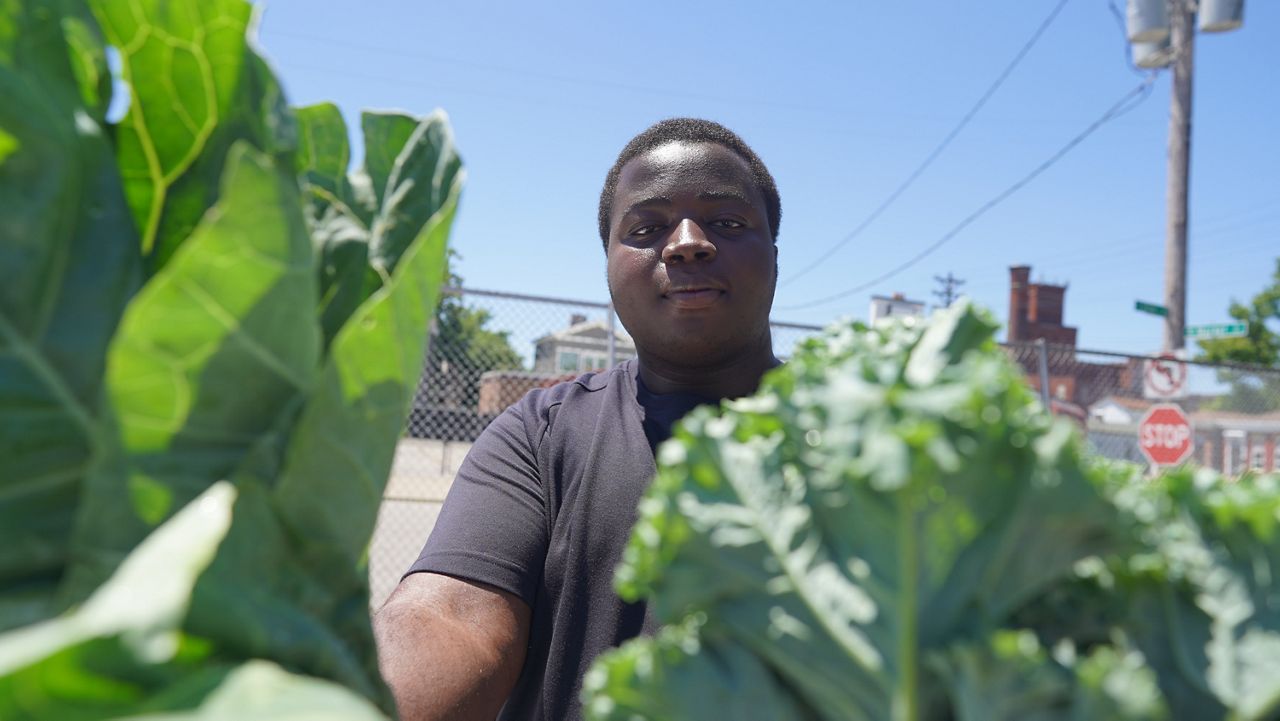LOUISVILLE, Ky. — Monday marked World Refugee Day, and Kentucky is a city that has one of the country’s largest resettled population per capita.
What You Need To Know
- June 20 is recognized as World Refugee Day
- Louisville has one of the country’s largest refugee population per capita
- Common Earth Gardens let refugees grow produce from their native region
- Catholic Charities is a leading organization in offering refugee services and resources
Louisville celebrated World Refugee Day big time, as the Derby City has one of the largest refugee populations per capita in the country. Louisville also has many unique refugee resource organizations and programs, including “Common Earth Gardens.”
“We have some kale, red Russian kale, collard greens,” Amir Hussein said. The 19-year-old is part of a community growing operation.
Hussein, who is a native of Kenya and born to Somali parents, makes daily trips to work on an urban farm designed specifically for Louisville’s resettled residents. They are called “Common Earth Gardens,” managed in part by Catholic Charities.
“As time goes on, those community gardens get bigger and bigger,” Hussein explained.

The agricultural program provides land for Louisville’s refugees to grow fruits and vegetables native to their country of origin. Without Common Earth, access to native foods is very difficult, according to Susan Smith of Catholic Charities.
“A lot of refugees who relocated to America experience illness because of the American diet as opposed to the diet they are accustomed to, which is rich in fresh foods and healthier foods,” Smith said.
Not only do participants grow food for their own family and community, but they can also sell produce at several Louisville farmers’ markets. Hussein said over 400 refugee families are benefiting from Common Earth grow sites and more and more farmland is needed.
“As time goes on, things are expanding and people are getting more accustomed to the community gardens. Some are actually wanting to their own community gardens to produce on their land and we always have people who need more land,” Hussein said.
Common Earth is growing on a total 16 acres of land at several locations and is hoping to cultivate additional partnerships with area landowners.



